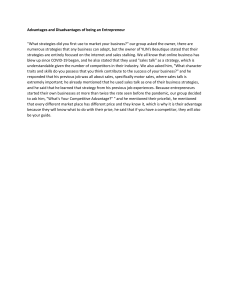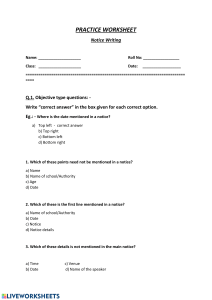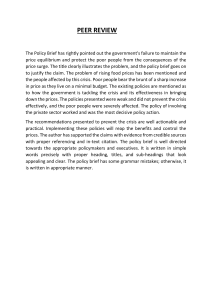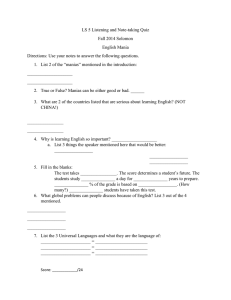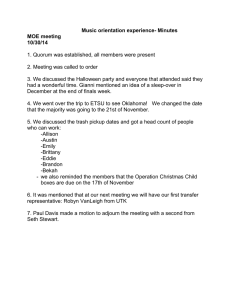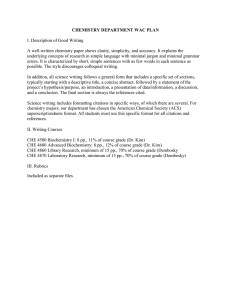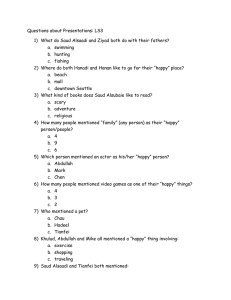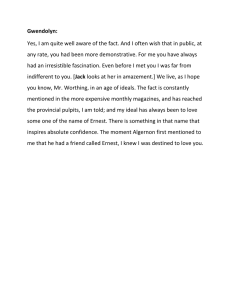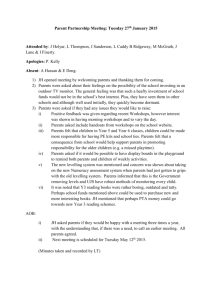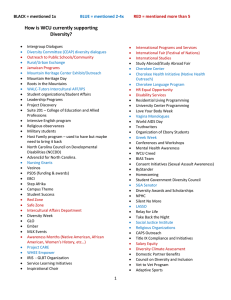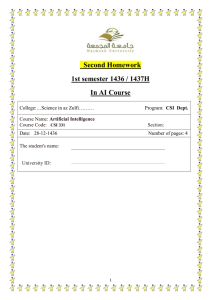Notes on Writing an Abstract - University of Minnesota Duluth
advertisement
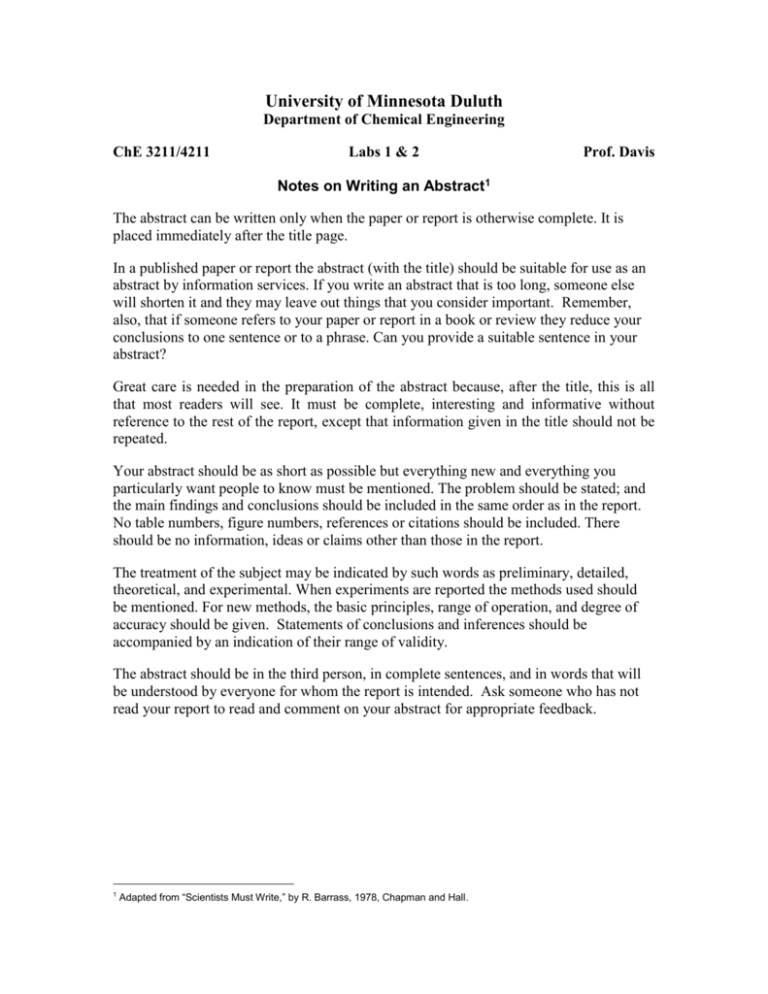
University of Minnesota Duluth Department of Chemical Engineering ChE 3211/4211 Labs 1 & 2 Prof. Davis Notes on Writing an Abstract1 The abstract can be written only when the paper or report is otherwise complete. It is placed immediately after the title page. In a published paper or report the abstract (with the title) should be suitable for use as an abstract by information services. If you write an abstract that is too long, someone else will shorten it and they may leave out things that you consider important. Remember, also, that if someone refers to your paper or report in a book or review they reduce your conclusions to one sentence or to a phrase. Can you provide a suitable sentence in your abstract? Great care is needed in the preparation of the abstract because, after the title, this is all that most readers will see. It must be complete, interesting and informative without reference to the rest of the report, except that information given in the title should not be repeated. Your abstract should be as short as possible but everything new and everything you particularly want people to know must be mentioned. The problem should be stated; and the main findings and conclusions should be included in the same order as in the report. No table numbers, figure numbers, references or citations should be included. There should be no information, ideas or claims other than those in the report. The treatment of the subject may be indicated by such words as preliminary, detailed, theoretical, and experimental. When experiments are reported the methods used should be mentioned. For new methods, the basic principles, range of operation, and degree of accuracy should be given. Statements of conclusions and inferences should be accompanied by an indication of their range of validity. The abstract should be in the third person, in complete sentences, and in words that will be understood by everyone for whom the report is intended. Ask someone who has not read your report to read and comment on your abstract for appropriate feedback. 1 Adapted from “Scientists Must Write,” by R. Barrass, 1978, Chapman and Hall.
